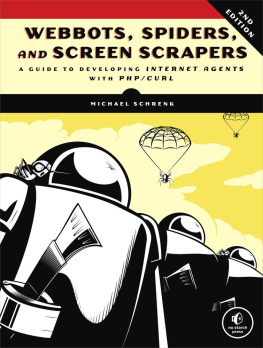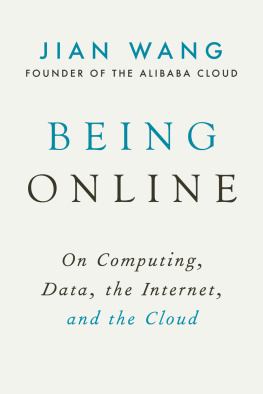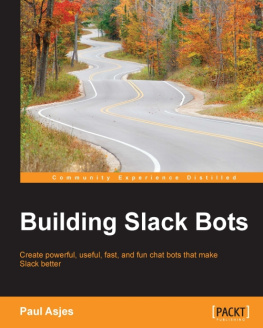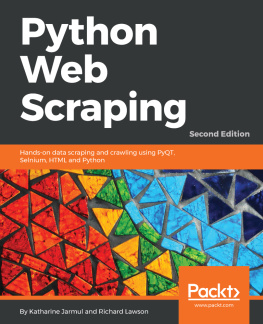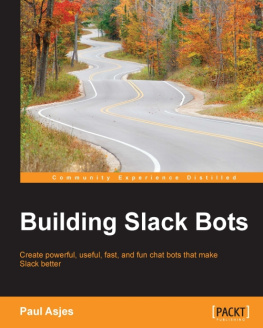Michael Schrenk - Webbots, Spiders, and Screen Scrapers: A Guide to Developing Internet Agents with PHP/CURL
Here you can read online Michael Schrenk - Webbots, Spiders, and Screen Scrapers: A Guide to Developing Internet Agents with PHP/CURL full text of the book (entire story) in english for free. Download pdf and epub, get meaning, cover and reviews about this ebook. year: 2012, publisher: No Starch Press, genre: Computer. Description of the work, (preface) as well as reviews are available. Best literature library LitArk.com created for fans of good reading and offers a wide selection of genres:
Romance novel
Science fiction
Adventure
Detective
Science
History
Home and family
Prose
Art
Politics
Computer
Non-fiction
Religion
Business
Children
Humor
Choose a favorite category and find really read worthwhile books. Enjoy immersion in the world of imagination, feel the emotions of the characters or learn something new for yourself, make an fascinating discovery.
- Book:Webbots, Spiders, and Screen Scrapers: A Guide to Developing Internet Agents with PHP/CURL
- Author:
- Publisher:No Starch Press
- Genre:
- Year:2012
- Rating:4 / 5
- Favourites:Add to favourites
- Your mark:
Webbots, Spiders, and Screen Scrapers: A Guide to Developing Internet Agents with PHP/CURL: summary, description and annotation
We offer to read an annotation, description, summary or preface (depends on what the author of the book "Webbots, Spiders, and Screen Scrapers: A Guide to Developing Internet Agents with PHP/CURL" wrote himself). If you haven't found the necessary information about the book — write in the comments, we will try to find it.
Theres a wealth of data online, but sorting and gathering it by hand can be tedious and time consuming. Rather than click through page after endless page, why not let bots do the work for you?
Webbots, Spiders, and Screen Scrapers will show you how to create simple programs with PHP/CURL to mine, parse, and archive online data to help you make informed decisions. Michael Schrenk, a highly regarded webbot developer, teaches you how to develop fault-tolerant designs, how best to launch and schedule the work of your bots, and how to create Internet agents that:
- Send email or SMS notifications to alert you to new information quickly
- Search different data sources and combine the results on one page, making the data easier to interpret and analyze
- Automate purchases, auction bids, and other online activities to save time
Sample projects for automating tasks like price monitoring and news aggregation will show you how to put the concepts you learn into practice.
This second edition of Webbots, Spiders, and Screen Scrapers includes tricks for dealing with sites that are resistant to crawling and scraping, writing stealthy webbots that mimic human search behavior, and using regular expressions to harvest specific data. As you discover the possibilities of web scraping, youll see how webbots can save you precious time and give you much greater control over the data available on the Web.
Michael Schrenk: author's other books
Who wrote Webbots, Spiders, and Screen Scrapers: A Guide to Developing Internet Agents with PHP/CURL? Find out the surname, the name of the author of the book and a list of all author's works by series.

